Roughly 50 miles south of Samarkand, the Crown Jewel of Uzbekistan, is the city of Shahrisabz. Located in the Qashqadaryo Region in the southeastern part of the country, Shahrisabz is an ancient city. The city is well-known as the birthplace of Amir Timur, the Turco-Mongol Persianate conqueror who founded the Timurid Empire. But this charming UNESCO World Heritage City is much more than that. Its historical significance makes exploring Shahrisabz, Uzbekistan and its UNESCO sites a real treat.
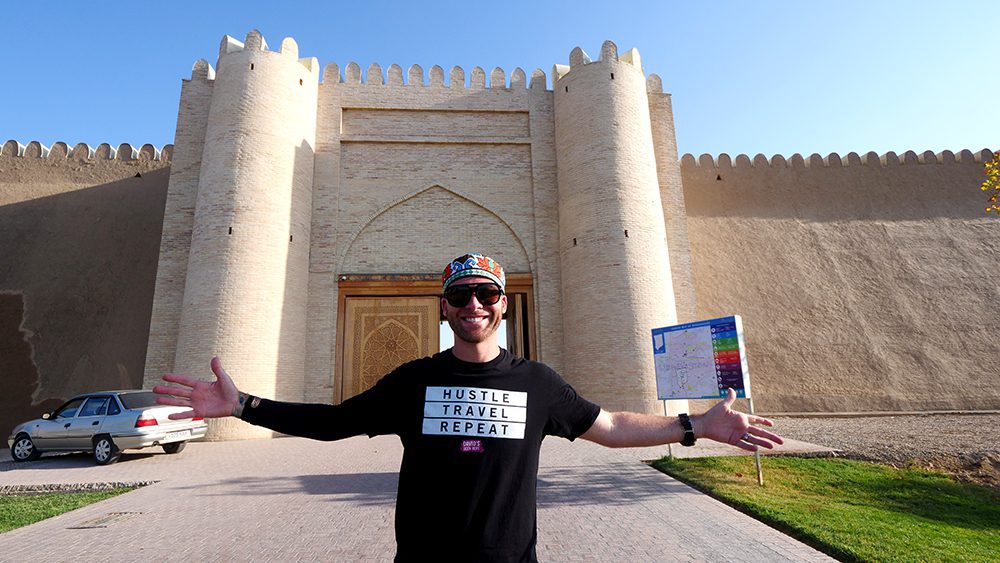
The city of Shahrisabz was founded over 2,700 years ago, making it one of Central Asia’s most ancient cities. The city was formerly known as Kesh. It is thought by some to be associated with an ancient, long-lost city known as Nautaca. Nautaca is believed to have been located somewhere between present-day Afghanistan and Samarkand. Early in its history, Kesh was part of the Achaemenid Empire from the 6th to 4th centuries BC.
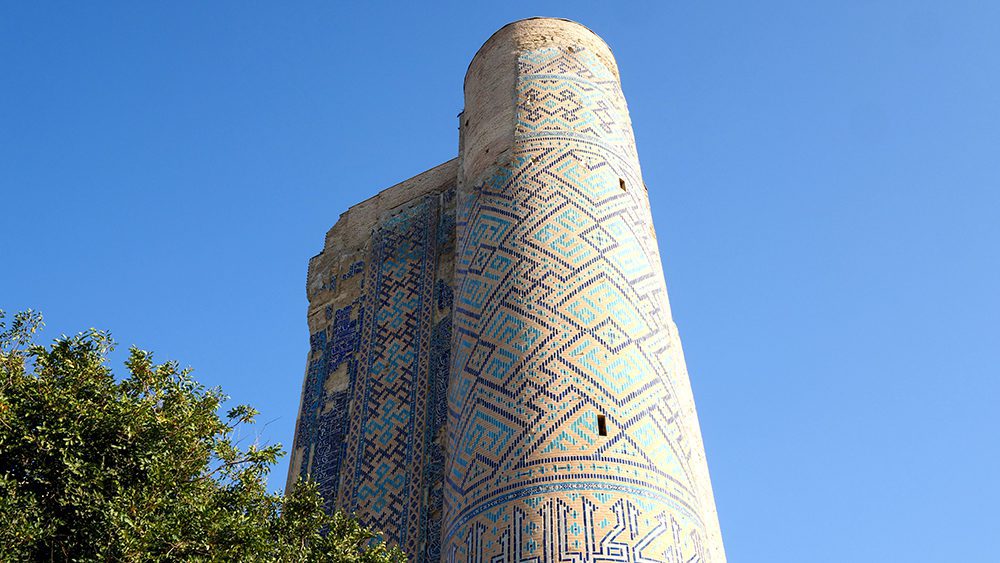
Later, it was also a major city in Sogdiana, an ancient Iranian civilization that existed from the 6th century BC to the 11th century AD. It was also a part of the Timurid Empire from the 14th to 16th centuries. The city’s name changed from Kesh to Shahrisabz during the modern era.
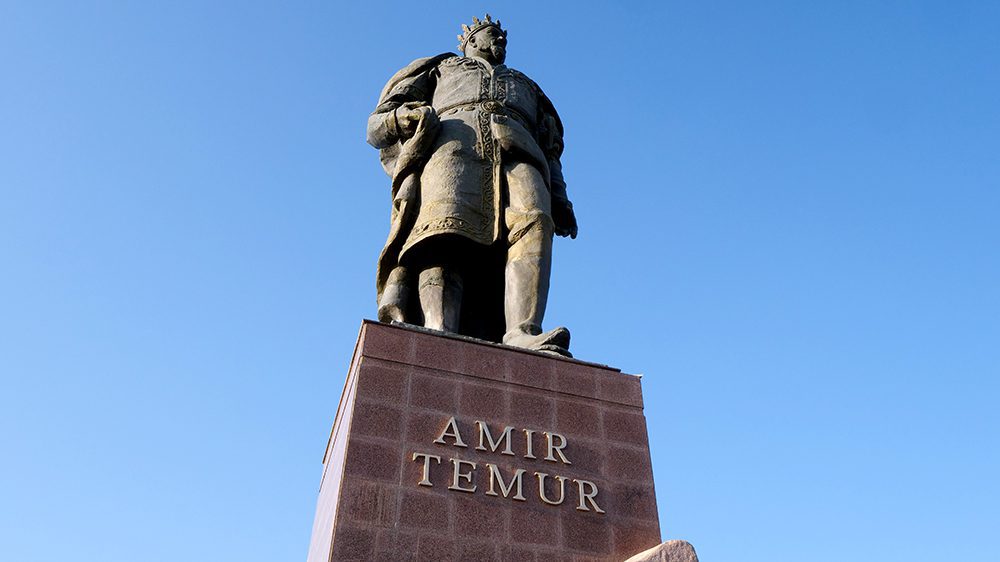
That long history means that the city is a historical treasure trove. And yet, this ancient city’s history was considered endangered as recently as 2017. After a 1.2-mile stretch of the historic old town (including two traditional malhalla districts, UNESCO-protected medieval homes, old streets, and ancient water management systems) was demolished in 2015 to make room for a hotel, a wide boulevard, and a modern plaza, the city found itself in danger of losing its UNESCO status.
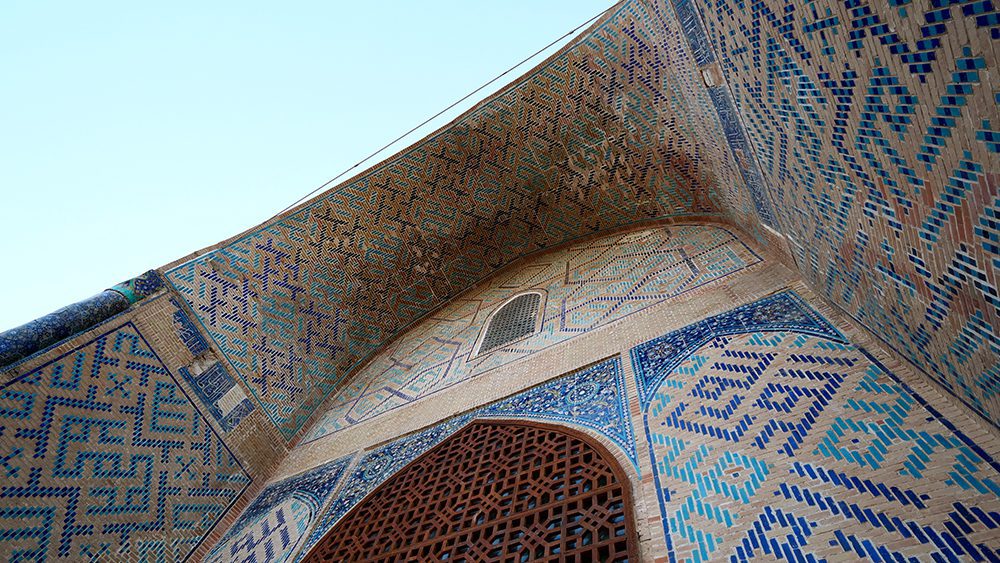
Thankfully, construction on the hotel halted in 2016, but the damage to the ancient sites had already been done. That said, many structures from the Timurid Empire still stand in the city today. They include the magnificent Kok Gumbaz Mosque, while the ruins of others can also be seen.
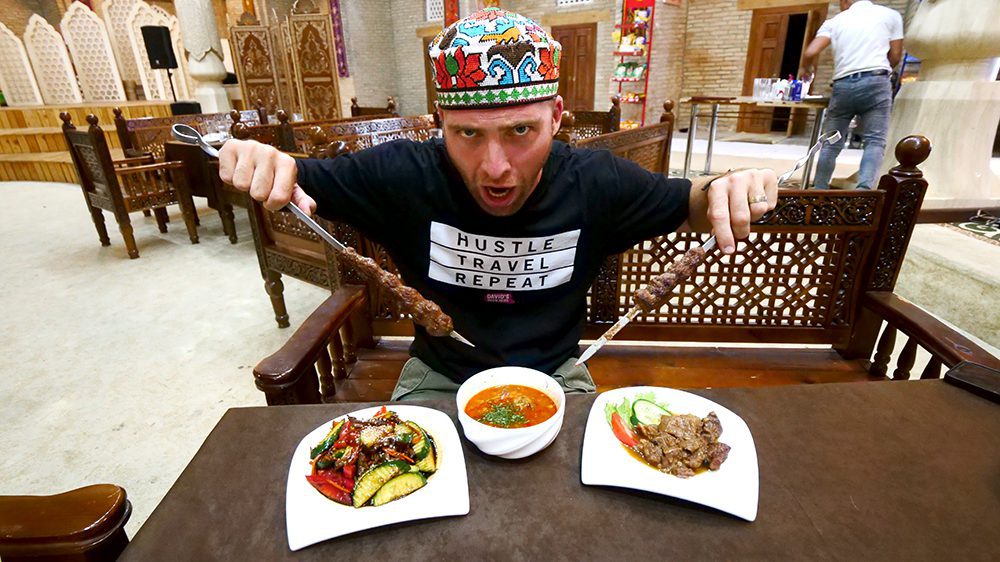
Even with some of the city’s historical center forever changed, I disagree with those who say Shahrisabz doesn’t have much to offer. The ruins here are some of the most spectacular ruins in all of Uzbekistan. I believe Shahrisabz should be on every travel itinerary through the country. These are the things you should see and do while exploring Shahrisabz, Uzbekistan, the beautiful UNESCO World Heritage City.
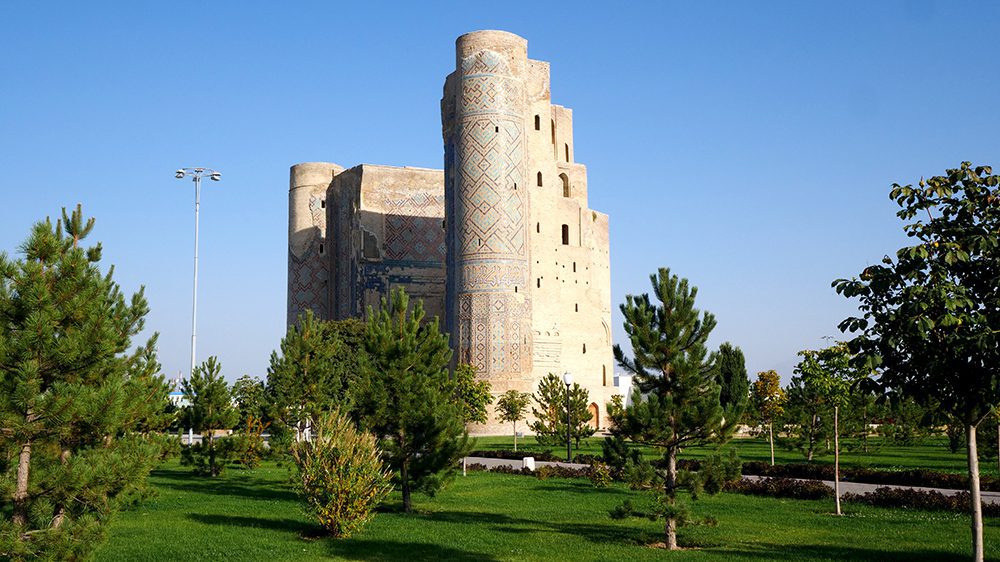
Upon passing through the gate leading to the historic old town of Shahrisabz, one of the first structures that caught my attention was the OQ Saroy Majmuasi Complex. Also known as the Ak-Saray Palace, these ruins are easily the largest and grandest you’ll see while exploring Shahrisabz.
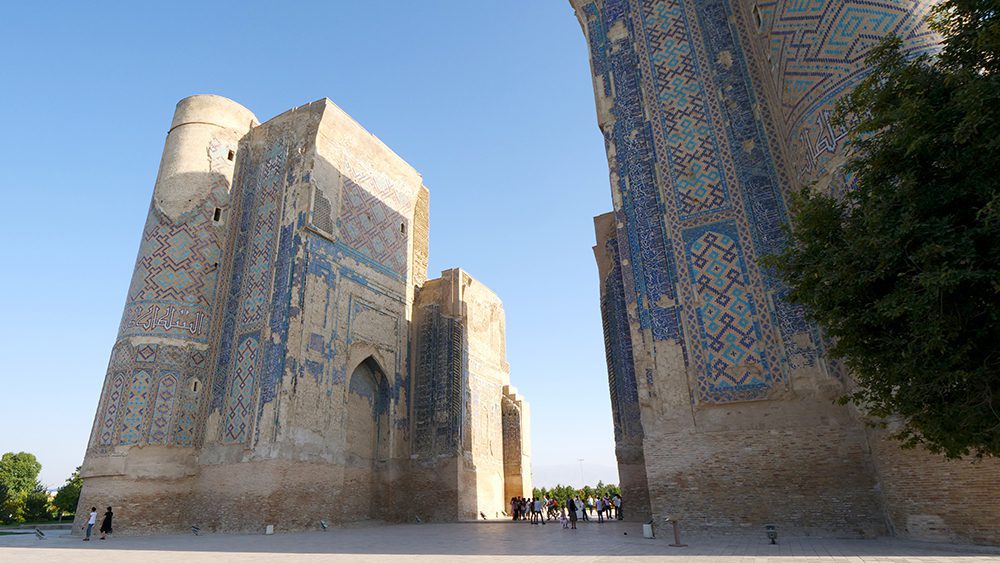
The complex was meant to serve as Amir Timur’s summer palace. Construction on it began in 1380 by artisans Timur had deported from Khwarezm. The palace, whose name translate to “white, light magnificent palace,” was constructed with white marble slabs. It is thought that as many as 50,000 slaves took roughly 25 years to complete the palace complex.
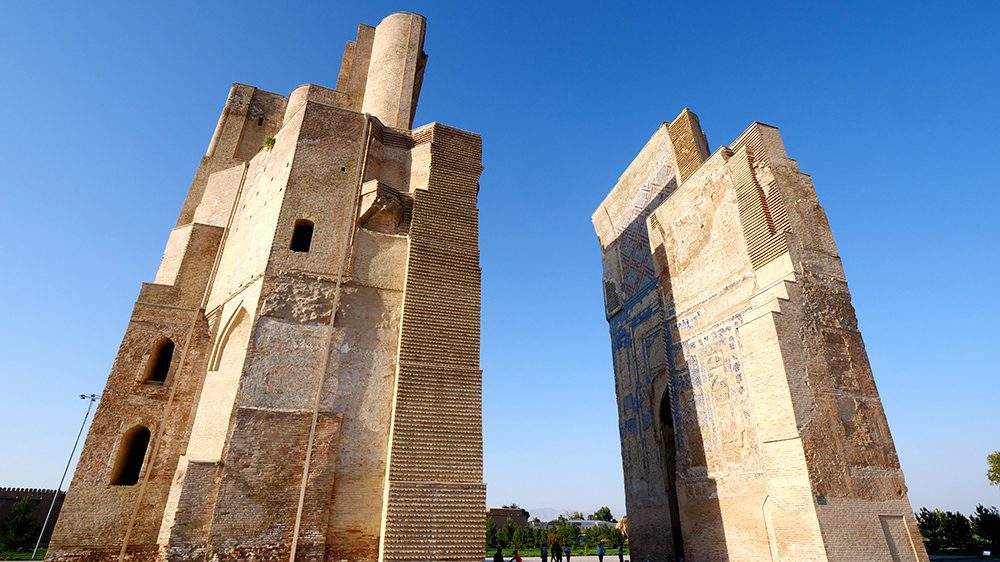
While the palace has long been destroyed, parts of its enormous gate remains today. It was covered in blue, white, and gold tile mosaics and towered over the city at 65 meters high. Today, much of the gate has been destroyed, with the tallest pieces standing at 32 meters tall. Even partly destroyed, the remaining pieces are well-preserved and are absolutely breathtaking to stand beneath. Much of the 14th-century tilework is still intact! It’s no wonder this complex has been a UNESCO World Heritage Site since 2000!
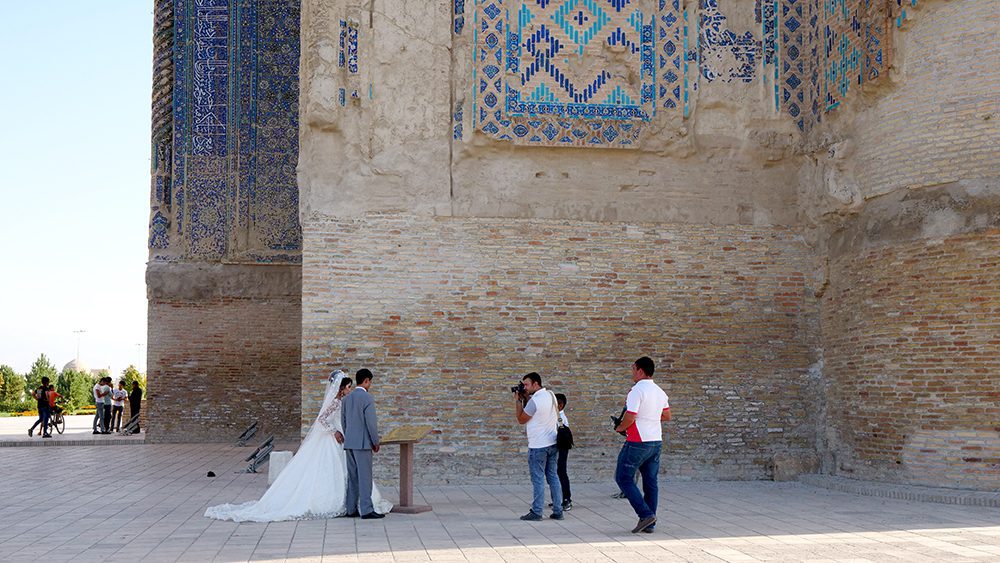
As I stood in the shadow of these monstrous ruins, I couldn’t help but think that the towering gate was not only a sign of Timur’s wealth and power, but that it could also be used as a watchtower. From 65 meters off the ground, anyone at the top would be able to see the entire valley Shahrisabz is nestled in and would be able to spot invaders from afar.
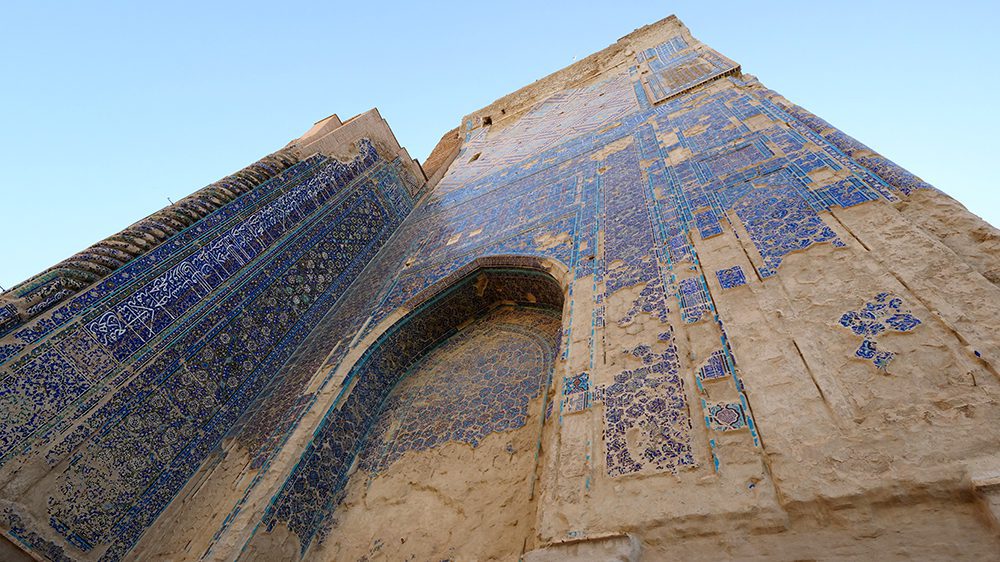
The OQ Saroy Majmuasi Complex is one of the most remarkable sites I visited in Uzbekistan. It’s one of the best things to do while exploring Shahrisabz, Uzbekistan and touring its beautiful UNESCO sites.
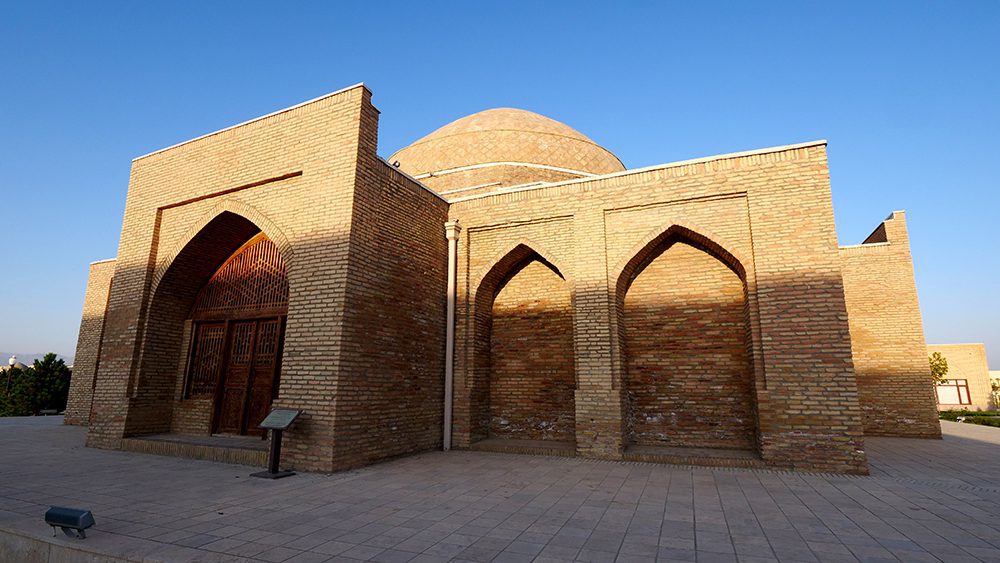
While you’re exploring the UNESCO World Heritage City of Shahrisabz, be sure to take some time to check out Chorsu Complex. This historical complex, noted for its beautiful architecture, is a local crafts bazaar. It was located in the middle of the city’s historical center. It’s quite small when compared to the cavernous Chorsu Bazaar and Oloy Bozori in Tashkent and the never-ending Siyob Bazaar in Samarkand. But just because it’s small doesn’t mean it doesn’t have anything to offer.
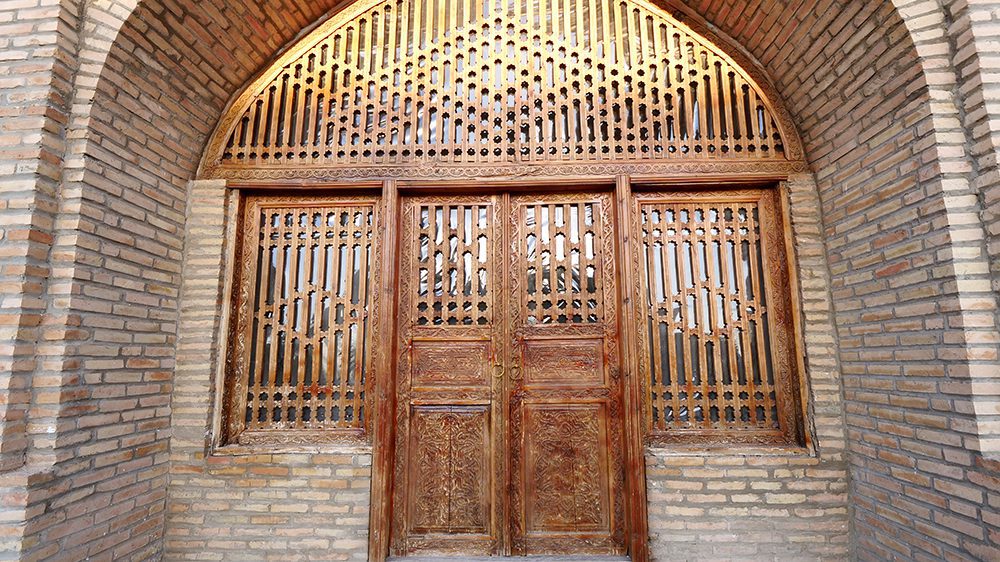
In addition to vendors, you’ll also find an art gallery inside Chorsu Complex. It’s a fantastic spot to view art by young, local artists and artisans. Take a peek inside to marvel at the world of Shahrisabz’s new generation of artists!
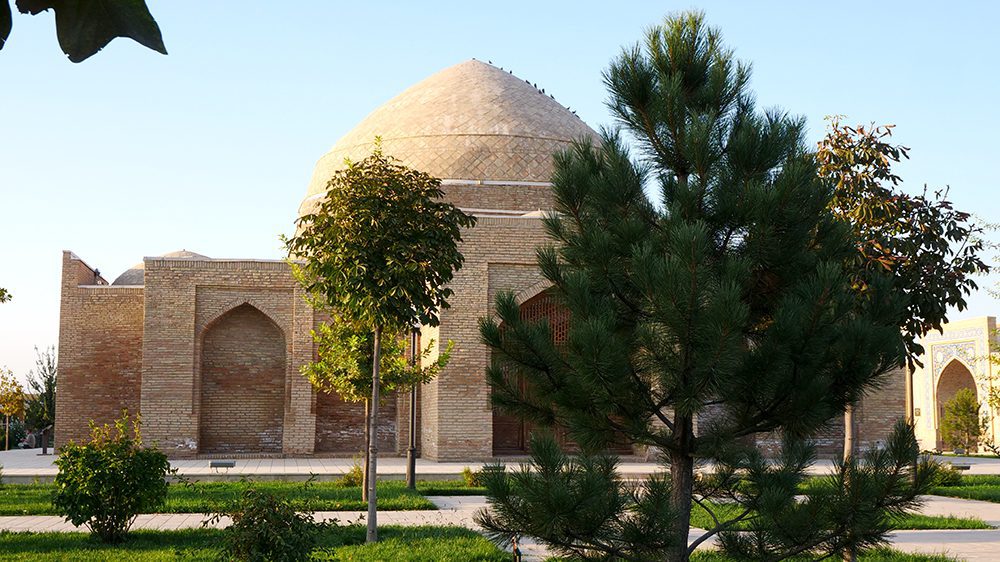
Perhaps the best thing about Chorsu Complex is that it’s centrally located. It’s just a couple of minutes from both Abdushukur Agalik Mosque and the Koba Caravanserai on foot, so it’s super convenient. From the outside, you can see that many parts of it have been restored over the years. And while there’s a clear difference between the old and new bricks and cement, it’s still one of the best things to see while exploring Shahrisabz, Uzbekistan and seeing its UNESCO sites.
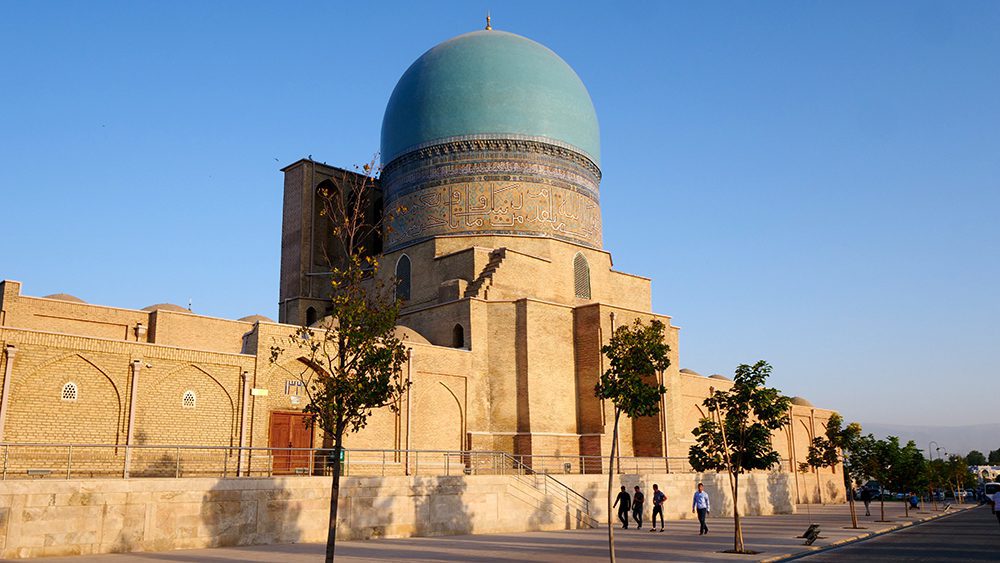
There’s no doubt in my mind that exploring Shahrisabz and seeing its UNESCO sites is treat for anyone visiting Uzbekistan. One of the highlights of my time there was the time I spent at Kok Gumbaz Mosque. Built by a Timurid sultan, astronomer, and mathematician named Ulug Begh in 1437, the mosque honors Begh’s father, Shah Rukh. Appearance-wise, the mosque is well known for its large, blue dome, which is quite beautiful and gleams under the hot Uzbek sun.
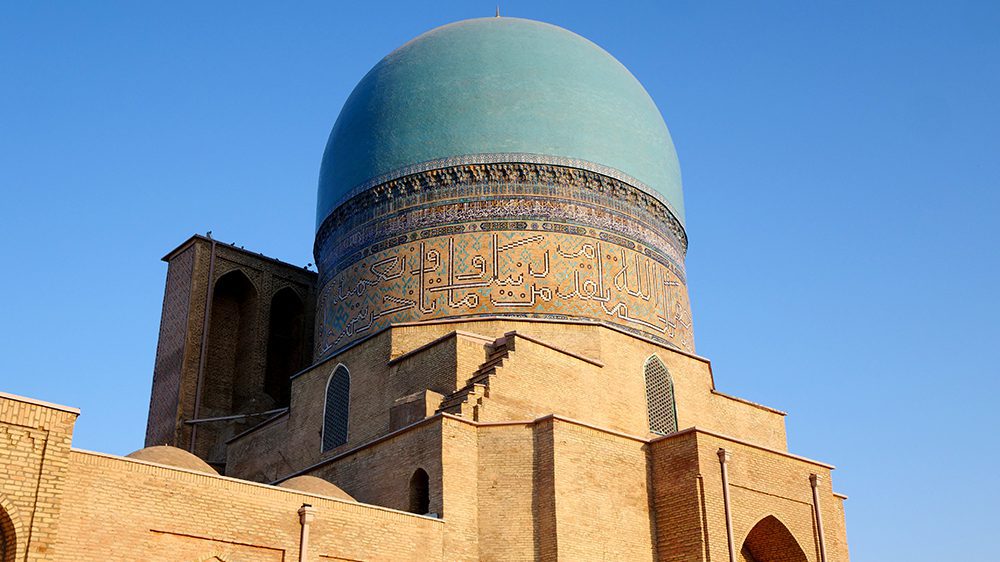
The mosque’s dome is the largest in Uzbekistan, and the mosque itself is the largest mosque in Shahrisabz. I had seen lots of domed structures during my time in the country, but none quite like this. I couldn’t help but admire the entrance, which was similar to the one at Bibi-Khanym Mosque in Samarkand, and the Central Asian architecture in general!
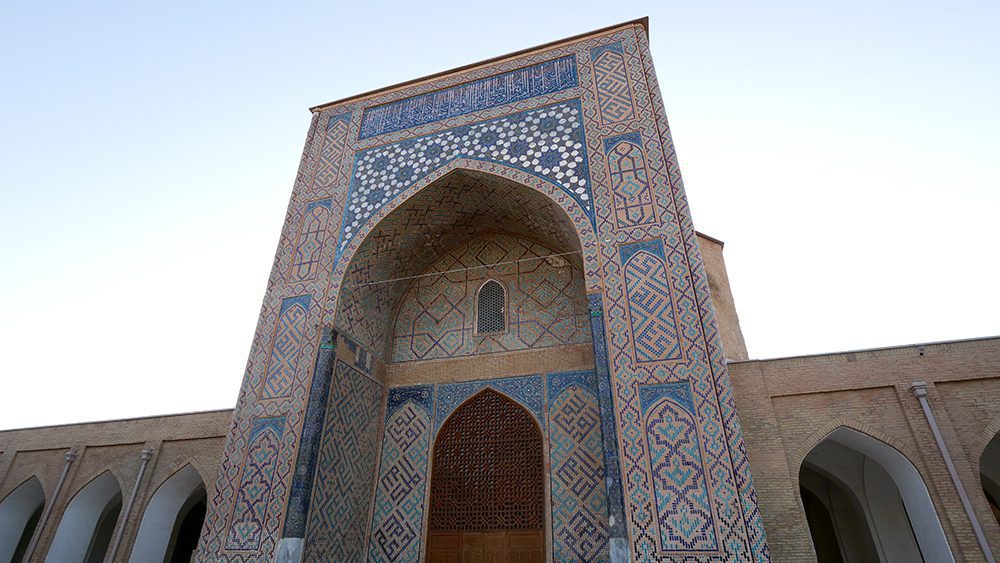
But while the outside of the mosque is certainly beautiful, it doesn’t hold a candle to the interior. The walls inside the mosque are covered in white, blue, and orange designs, including stars, trees, and scripture from the Koran. The painted designs were all similar to one another. I learned during my visit that the designs and their colors signify positive energy. They were so bright and vibrant, it was easy to forget that they’re half a millennia old!
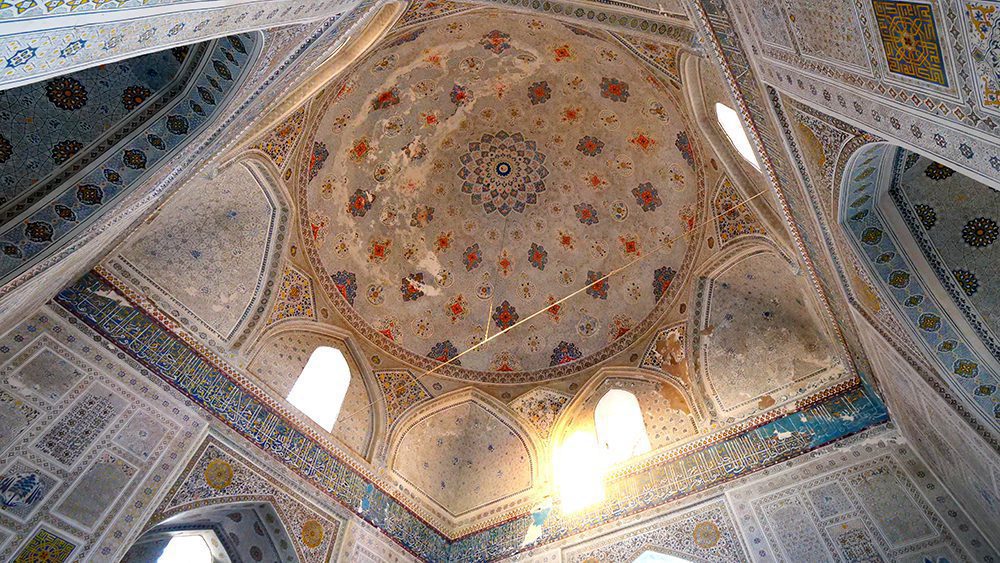
Inside the mosque is a crypt with a stunning marble tomb inside. This tomb is the resting place of Shayx Shamsiddin Kulol, the mentor of Amir Timur. Like the rest of the mosque, the blue-and-white walls looked as though they had recently been painted, even though they were 500 years old.
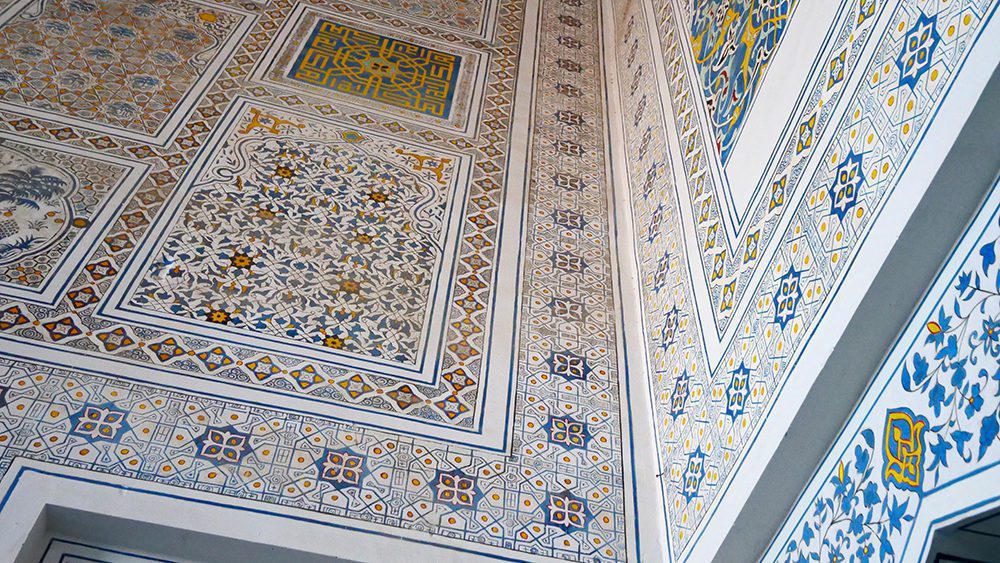
Regardless of your religious beliefs, it’s not hard to find Kok Gumbaz Mosque breathtaking. It’s one of the most beautiful UNESCO sites I visited while exploring Shahrisabz, Uzbekistan and should be on every UNESCO itinerary of the city!
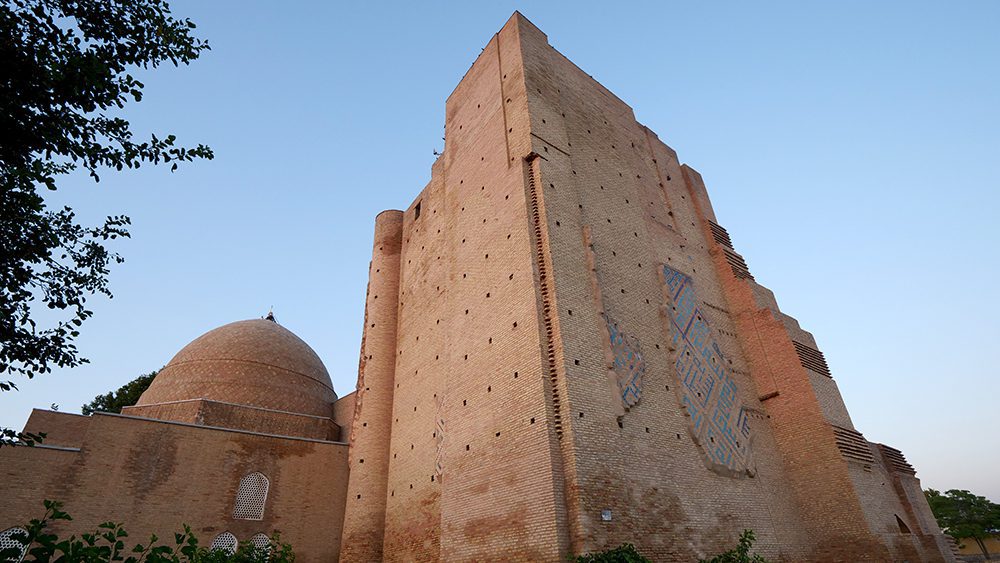
A quick walk east from Kok Gumbaz Mosque will take you to another of Shahrisabz’s most notable historical and cultural sites, the Dorus Saodat Mausoleum Complex. This complex, whose name translates to “Seat of Power and Might,” has an interesting history. This necropolis was meant to be the burial site of Amir Timur, but those plans changed after Timur’s grandson suddenly passed away. Timur’s grandson was buried in the Gur-e-Amir complex in Samarkand, which was initially meant to be a madrasah.
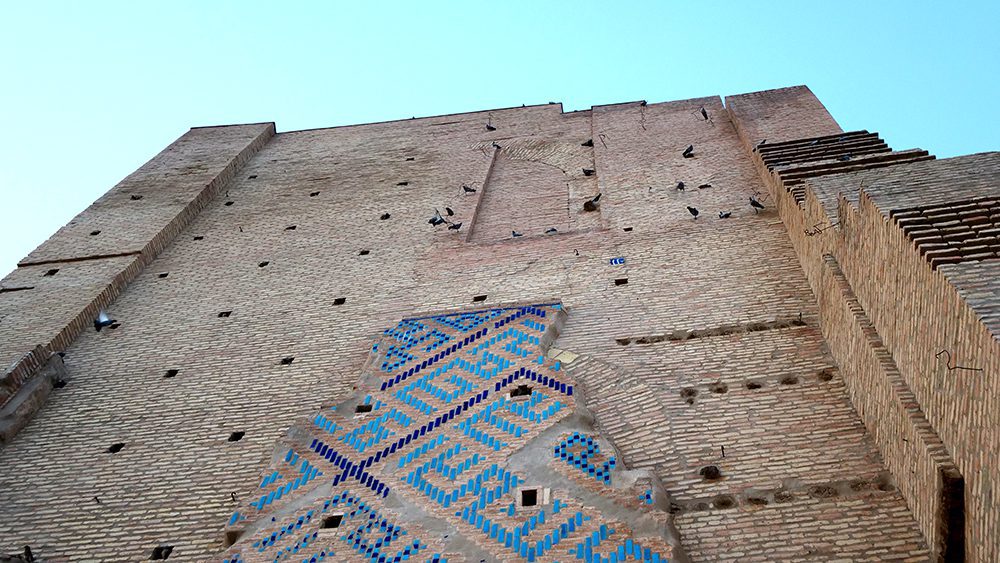
Meanwhile, the crypt meant to house Timur went to his favorite and oldest son, Jehangir. The eroding exterior of the building exudes a sense of lost grandeur, as most of its intricate tilework has fallen or worn away. The inside of the crypt is very plain and white, though the inscription on the tomb is an inspiring message about leaving a legacy for the world.
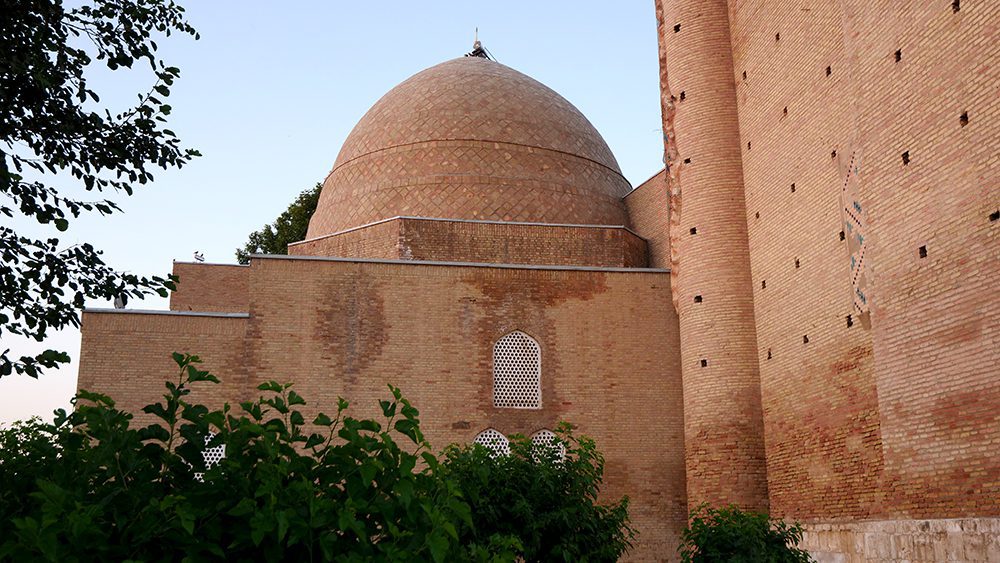
Another feature of the Dorus Saodat Mausoleum Complex is a second mosque. This mosque is thought to be the final resting place of Amir Kulal, a 13th-century imam and Persian Sufi Islamic scholar. Kulal is considered by many to be one of the most influential Islamic scholars in history!
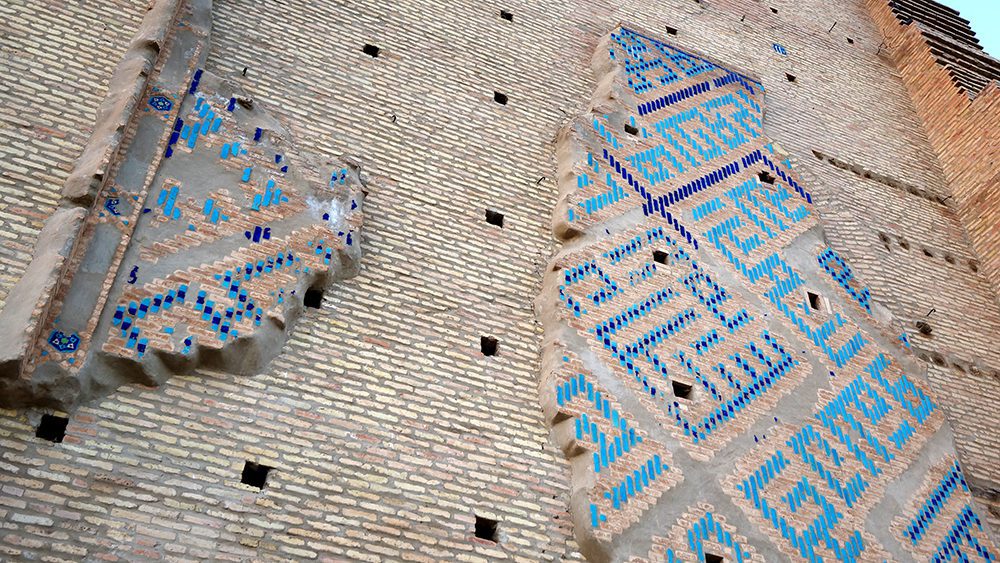
It’s hard to not be inspired by these incredible men who left legacies that have lasted centuries beyond their deaths while exploring the UNESCO city of Shahrisabz. I couldn’t help but feel connected to the history of this amazing city as I wandered the complex. It’s an experience I hope everyone has when they visit!
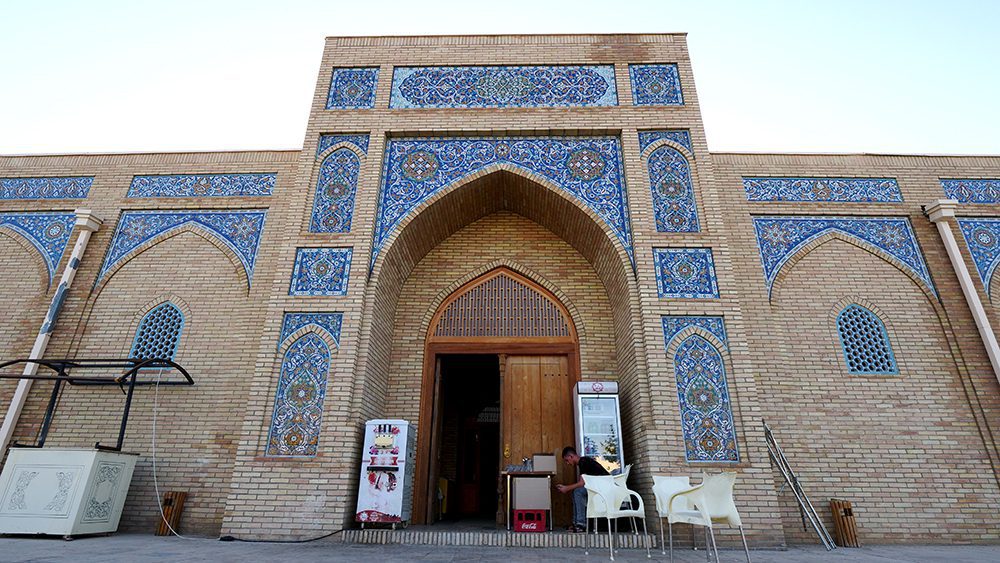
As you enter the recreational area inside the city gates, you’ll come across several structures within close proximity of each other just past the statue of Amir Timur. They include the Amir Timur Museum, which houses several artifacts connected with the Timurid ruler, and the Koba Caravanserai.

Caravanserais were roadside inns that catered to travelers. More specifically, they were places where weary travelers could rest and recharge during their journeys. They were popular along the Silk Road. The Koba Caravanserai no longer serves as an inn and is now a restaurant. Its dining hall is a large, wide-open space with gorgeous architecture. It’s well-insulated and stays cool even with the blistering Uzbek sun beating down on it during the day.
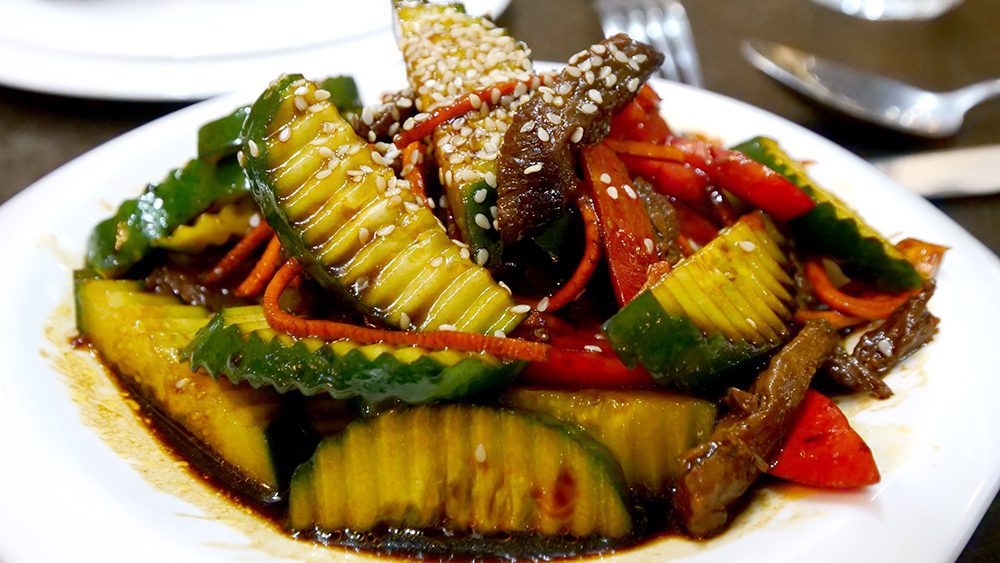
After a day of exploring Shahrisabz, Uzbekistan and its UNESCO World Heritage Sites, I recommend stopping by the Koba Caravanserai for dinner. Starters don’t get much better than the Koba salad, a beef salad that also contains cucumbers, tomatoes, carrots, sesame seeds, and balsamic vinegar. It’s the perfect combination of oily and refreshing. The sesame flavor from the seeds takes it to the next level!

Other great starters include the fried dumplings and chicken, rice, potato, and carrot soup. The soup is especially tasty and is a fantastic chicken and vegetable soup. The vegetables come finely diced and absorb the rich flavor of the broth.

Don’t fill up on the starters, though, because kebabs are on the menu. I’ve eaten kebabs all over the world, but Uzbek kebabs are some of the best I’ve ever had. They rival Indian kebabs in terms of quality and flavor. They’re incredibly juicy and have the perfect ratio of meat to fat content.
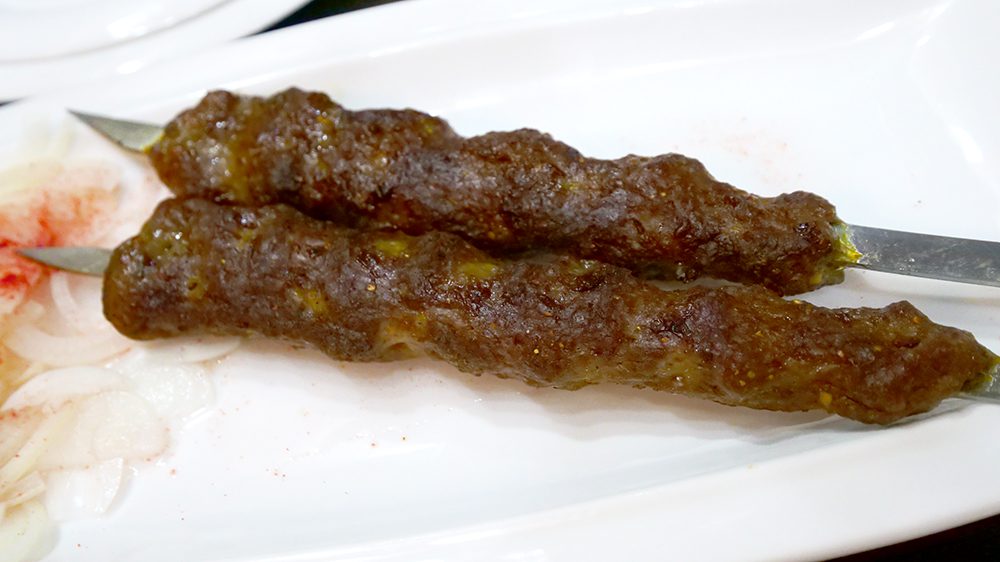
My guide also ordered a pair of beef dishes that I didn’t know the names of, but they were both outstanding. One came bathed in an oily, fatty sauce, while the second was beef ribs. The bones and the fat on the second beef dish gave the meat a deeper, richer flavor that I couldn’t get enough of. I loved the contrast between the meat and the fat!
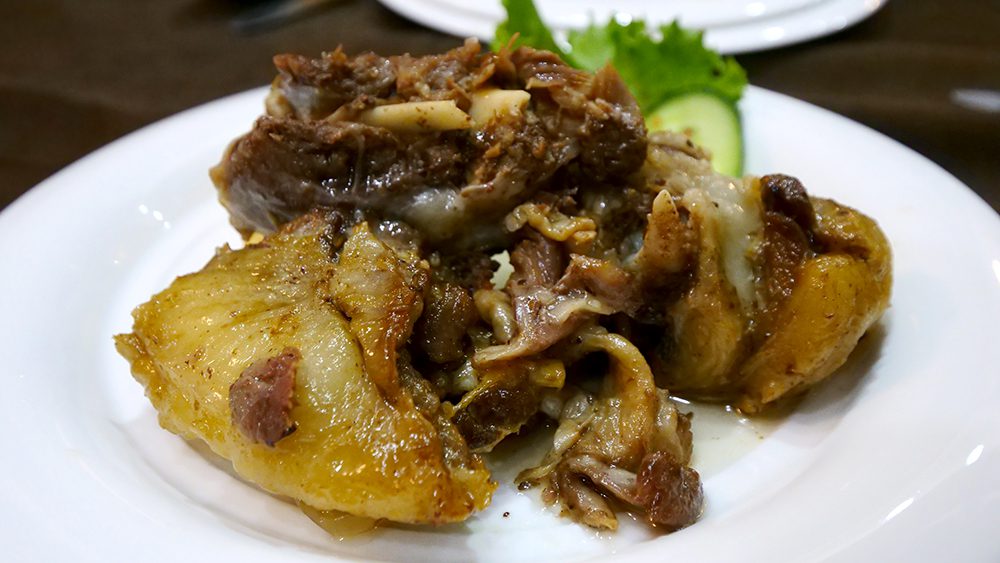
As you enjoy your meal, I recommend a glass of Uzbek wine. As I traveled around the country, I had the chance to try some of the country’s phenomenal grapes on several occasions. The quality of the grapes is evident in the wine, which is very sweet and fruity!
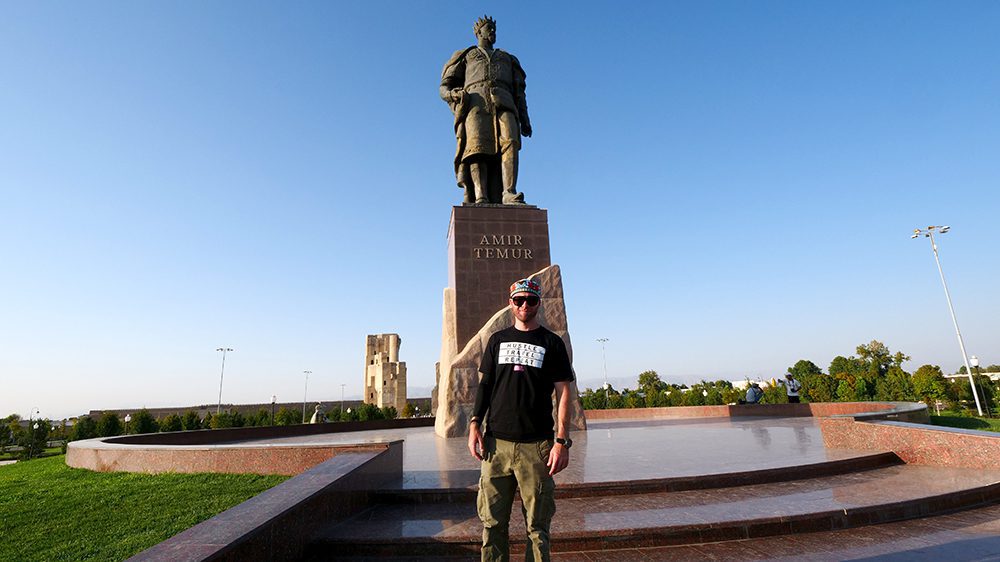
Some travelers may argue that there isn’t much to see in Shahrisabz and that it’s not worth visiting if you’ve seen more grand cities like Khiva, Bukhara, and Samarkand. I respectfully disagree. As a history enthusiast, visiting the birthplace of the most important figure in Uzbek history was a no-brainer. And exploring the unique mosques, mausoleums, and ruins that make Shahrisabz a UNESCO city further connected me with this country’s rich history. Combine that with the mouthwatering food and the friendly locals who showed me around, and I had a wonderful experience I couldn’t have replicated anywhere else. Take a drive from Samarkand to Shakrisabz to experience it for yourself!
NOTE: If you need to check the visa requirements of a particular country, click here. To apply for a visa, find up-to-date visa information for different countries, and calculate the cost of a particular visa, click here!
Counter
101 Countries • 1432 Cities
Bharat Taxi says:
“Great blog, it seems lots of effort and time was put into it. But its nicely written, reading this is effortless.
Thanks”